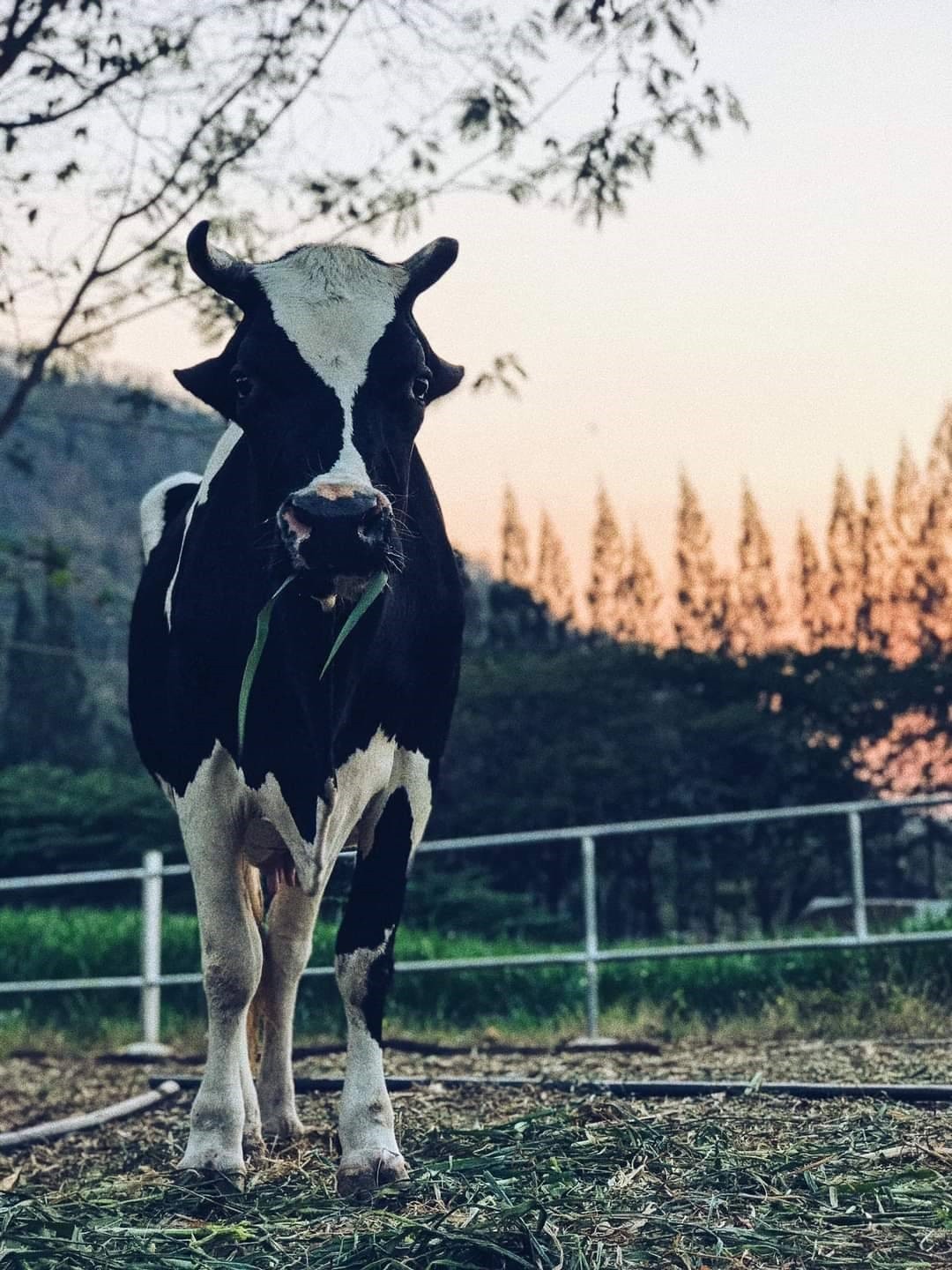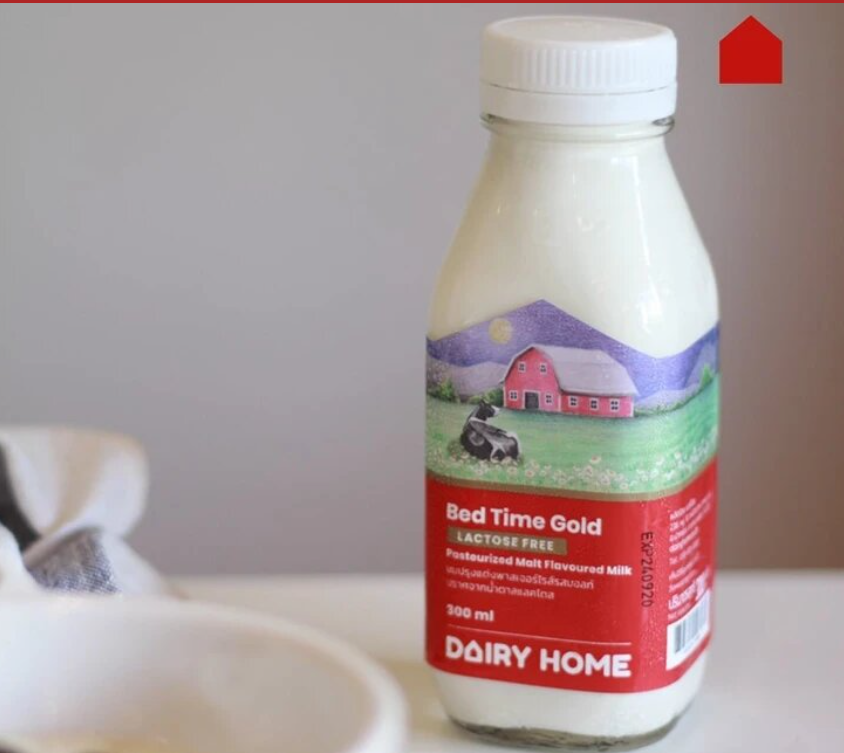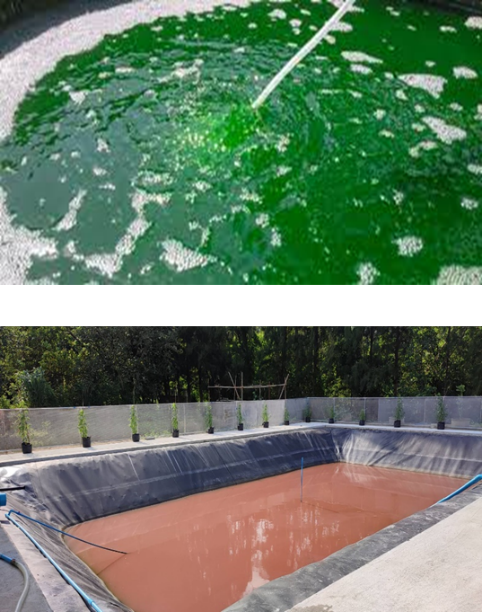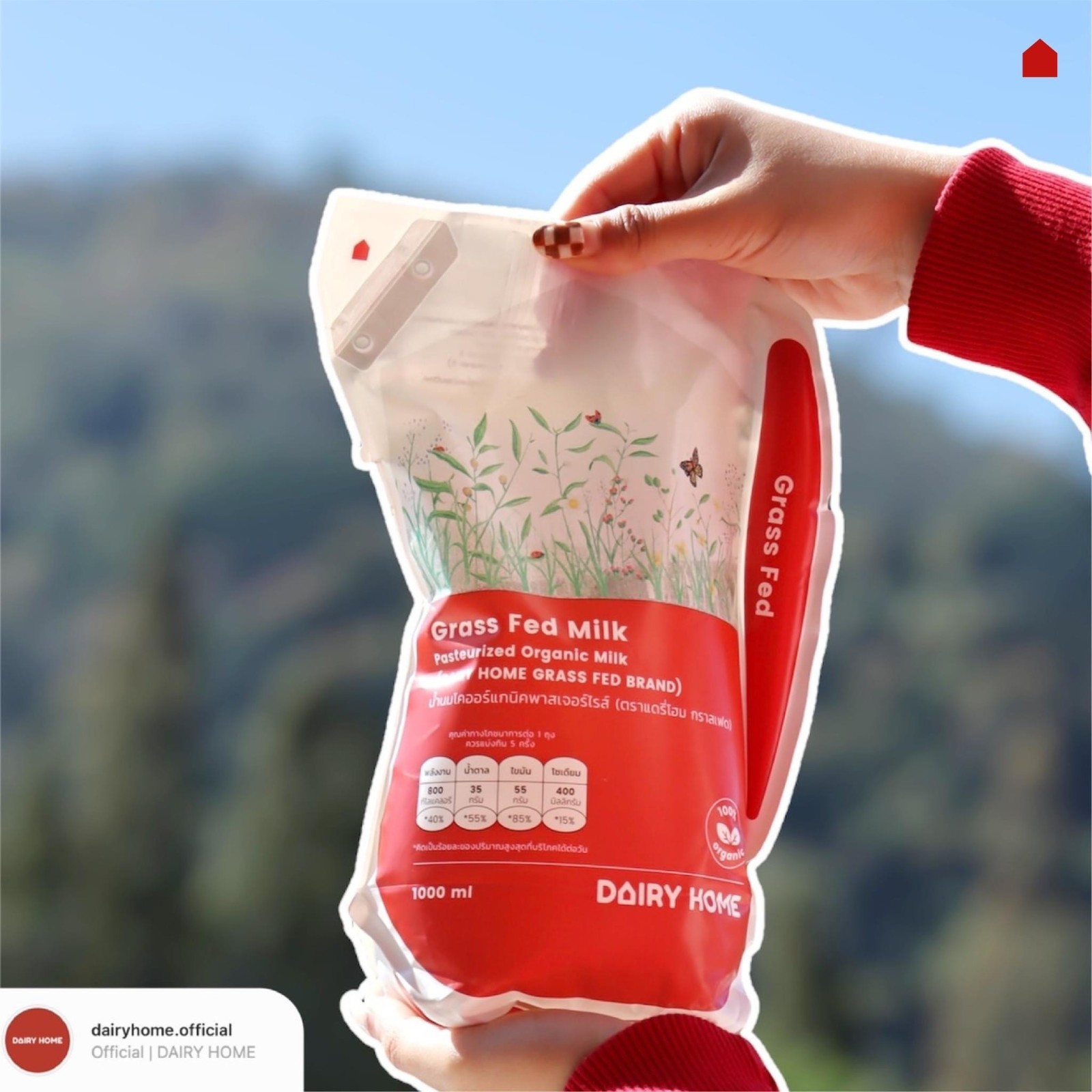By NUCHARAT SIRIPRAPAWAN, contributor
IT’S NO easy feat to become a producer of both organic and grass-fed milk, but Dairy Home which has been producing high-quality dairy for close to 23 years, has done it. As the first sustainable and organic dairy in Thailand, the company earned praises from the industry.

Of Asian and European stock, dairy Home’s cows roam freely and feed on grass and organic cassava and rice bran. (Photo: Dairy Home)
Dairy Home was established in 1999 in Pak Chong, Nakhon Ratchasima, in the northeast part of the country, where its farms are close to forests and waterfalls. In the early years of the company, founder and now CEO, Mr Pruitti Kerdchuchuen was already determined to go organic as he believed this to be the right direction. They needed to become sustainable and competitive, especially with the Free Trade Agreement with Australia and New Zealand to be implemented in 2004. This would mean dairy coming from these countries would be sold at much cheaper prices per liter compared to locally made dairy.

An innovation from the company, Bedtime Gold Lactose-Free Pasteurized Milk contains melatonin for inducing sleep. (Photo: Dairy Home)
With the impact of the FTA on business, Mr. Kerdchuchuen made a decision to shift the company’s product positioning to premium, and become an organic milk producer. No one ventured on this in Thailand at the time. Although the Department of Livestock did not issue a standard for organic milk then, Mr. Kerdchuchuen also applied for international organic dairy standards to his supply chain.
With certain principles in mind, his goals were aligned with responsibility to society, environment, and consumers. The company would apply environmentally friendly production processes and would support farmers who control their own production cost and produce good products.

Wastewater is treated for re-use in the farms, and litter is sorted for re-use or for conversion at a power plant. (Photo: Dairy Home)
The sustainable way
This was a new strategy for the local industry at the time but he was able to accomplish his objective. Changes were implemented. He encouraged the farmers to raise organic cattle feed such as corn, grass, and cassava to create a chemical-free environment. For the cows, each one required a corral of 5 square meters and green space to roam freely. The farms totally banned the use of synthetic supplementary feeds, chemical insecticide and antibiotics, while herbal insecticide sprays and medicines were permitted.
The organic farming concept that Mr. Kerdchuchuen introduced defined the agricultural food production systems’ focus on the balance of the ecosystem. Following sustainable farming, natural resources including soil, water, plants, and animals are not be forced for their output, but rather respected as part of the ecosystem. The sustainable way requires passion, refined processes, and patience to let nature be. For instance, dairy cows are not fed more than the farm’s feed production output. This is not good practice because if the cows eat faster than the grass can grow, then the natural balance is upset. This situation is avoided at all cost because it forces the farmers to resort to chemical fertilisers to speed up plant growth.
Dairy Home has a total of 1,500 cows which include their own and the network of cows from the local farmers. These cows are hybrid of European and Asian dairy cattle and can well withstand the hot and humid environment of Thailand. Well taken care of, they are free to roam the fields and eat chemical-free fresh grass. They are also given organic cassava and rice bran, and two meals per day are provided but not over 30% of dry matter intake. This method saves farmers in feed cost as well.
While to save on resources, the company has a wastewater treatment system innovated in co-research with a university. Chlorella and photosynthetic microorganisms help treat the water which is then used for the fields. Another sustainable practice at the farms is to sort litter for reuse and to send them to a power plant to be converted to energy.

The packaging materials for liquid dairy come are recyclable, lighter, and easy to handle. Unlike previous designs, the lightweight packaging stays upright even when the contents are partially consumed. (Photo: Dairy Home)
Organic and grass-fed premium milk
According to dairy product market surveys, Dairy Home is one of the favourite brands across the country. The company desires to foster organic products with high nutrition for its consumers. These products are free of unwanted chemicals, as well as pesticides and residual antibiotics.
The company collaborated with universities in developing its variety of milk products for the premium market. Among its innovations is the malt-flavoured dairy, Bedtime Gold Lactose-Free Pasteurized Milk which contains melatonin for inducing sleep. The milk is made when the cows have high melatonin levels in their milk. Other innovative products include For Fun (milk tablets with probiotics), yogurts, and grass-fed milk.
For packaging, the company uses 100% recycled materials and easy open-close button lids. New packaging used are also lighter than a bottle or box of the same volume, and are recyclable as well.
Dairy Home has demonstrated that its sustainable practices and projects allow it to save cost and meet its customer requirements.
References:
https://readthecloud.co/organic-milk/
https://www.dairyhome.co.th/our-productsairyhome.co.th/














